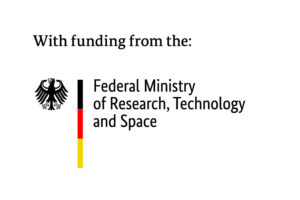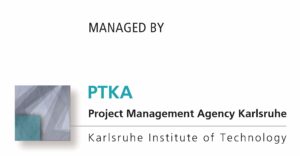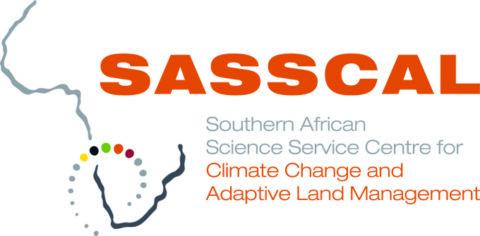Index
ResiKomp
ResiKomp: Strengthening the resilience of value creation networks through competence pooling
In the automotive, IT/semiconductor and smart infrastructure sectors in particular, supply bottlenecks, natural disasters, political instability or pandemics can lead to the complete collapse of value creation networks. Until now, there has been a lack of ability to quickly and flexibly deploy critical skills that are needed at short notice in crisis situations. For example, if maritime transport is disrupted, competences are needed to change transport routes, or expertise to negotiate emergency contracts. Together with partners from the sectors, the project is developing solutions on how to pool competences in a network with other actors.
ResiKomp aims to increase the resilience of value networks by procuring the necessary competences through digital competence pooling. Competence pools are digital points of contact for companies to identify critical competences in specific sectors, simulate crisis scenarios and their potential impact using, for example, AI algorithms, and develop mechanisms and specific actions to provide and procure the necessary competences in response to potential disruptions. Platform- or community-based approaches will enable companies to access critical competences across their network in crisis situations. This includes mechanisms to ensure a balance between trust and competition, hidden competence monopolies and risk mitigation mechanisms.
The project idea is characterized by the cross-network bundling of several necessary pillars for the provision and procurement of competences in crisis situations. These pillars provide tools for identifying, simulating and exchanging critical competences. In the future, a community of practice, leveling options for networks and operator concepts for digital competence pools will emerge.
Project funding and management
 |
 |
Related Publications
Featured Posts
This shortcode is only allowed in pages.
SHAPE
Orchestrating services – Development and piloting in service ecosystems
The research project SHAPE aspires to foster data-driven service innovations, which offer substantial benefits for the transformation and resilience of the German economy. Customer-specific, data-driven services increasingly require the cooperation of several actors, who have the required know-how, methodological expertise and resources. As a result, value co-creation is increasingly taking place in ecosystems. Hence, during the project period, the SHAPE hub is to be developed as a vehicle to orchestrate actors and resources and provide them with a set of methods that they can use for data-driven service innovations in ecosystems. The aim is to develop scalable approaches for establishing service ecosystems for SMEs, public institutions and other stakeholders.
Project funding and management
 |
 |
Related Publications
Featured Posts
This shortcode is only allowed in pages.
NBT

"Next Big Thing“ at UVEX SAFETY GROUP GmbH & Co. KG
Wi1 is scientifically supporting the "Next Big Thing" project of UVEX SAFETY GROUP GmbH & Co. KG. The aim of the project is to design a work organisation in the areas of people, methods and business processes within the next year in such a way that radical innovations are fundamentally possible. Based on the joint previous experience from the "SmartHaPSSS" project, the chair can provide scientific support for the project. The scientific support focuses on the methodological and conceptual support of the project processes and content as well as an accompanying evaluation of the individual work steps, which enables a qualitative assessment of the implemented measures and a comparison of the development over time. On the one hand, the methodological and conceptual support of the project processes and content regularly provides impetus for the conception and implementation as well as for the achievement of the strategic goals of UVEX SAFETY GROUP GmbH & Co. KG.
Related Publications
Featured Posts
This shortcode is only allowed in pages.
ROBIN
Resilience by orchestrating citizen-driven innovation through digital platforms in urban-rural constellations
The research project investigates how the resilience of municipalities can be improved by orchestrating citizen-driven innovation. Through the transdisciplinary involvement of civil society, municipalities can benefit from innovation impulses or hand over parts of the innovation process to civil society to be more agile in responding to crises and challenges, while at the same time enabling civil society to participate more by strengthening its own capacities. The aim is therefore to explore how an open digital innovation platform for municipalities should be designed so that innovators from civil society can organize themselves there at a low threshold to jointly develop solutions in crisis situations (possibly in cooperation with the municipality). As the problem areas of socio-environmental challenges in the context of sustainability (e.g. mobility, climate change, food supply, local recreation, housing, or education) in urban contexts tend to require a regional level in the sense of subsidiarity, another focus of the project is the interweaving of urban and rural areas as socially and functionally complementary spaces for the common good. In the design and provision of such a platform, the project also considers issues of data protection and the provision of such a platform, e.g. as a public service. Through the permanent and sustainable establishment of a digital platform for networking civil society actors in urban-rural constellations, the project aims to support municipalities in orchestrating citizen-driven innovations and to strengthen the resilience of a municipality's society and its spatial interdependencies.
Funded by

Related Publications
- , :
The Contribution of International Students in Smart Cities Through Open Innovation
2024 Smart Cities Symposium Prague, SCSP 2024 (Prague, 23. May 2024 - 24. May 2024)
In: Jiri Ruzicka (ed.): 2024 Smart Cities Symposium Prague, SCSP 2024 - Proceedings 2024
DOI: 10.1109/SCSP61506.2024.10552732 - , , :
Influence of Digital Open Innovation Platforms on Power Differentials within Municipalities
62nd Computers and People Research Conference: Trust and Legitimacy in Emerging Technologies: Organizational and Societal Implications for People, Places and Power, SIGMIS-CPR 2024 (Murfreesboro, TN, 29. May 2024 - 1. June 2024)
In: SIGMIS-CPR 2024 - Proceedings of the Computers and People Research Conference: Trust and Legitimacy in Emerging Technologies: Organizational and Societal Implications for People, Places and Power 2024
DOI: 10.1145/3632634.3655877 - , , :
A taxonomy of resident engagement barriers in public open innovation
EGOV-CeDEM-ePart 2024 (Ghent University and KU Leuven, Ghent/ Leuven, Belgium, 1. September 2024 - 5. September 2024)
In: Jolien Ubacht, Joep Crompvoets, Csaba Csaki, Lieselot Danneels, Marijn Janssen, Marius Rohde Johannessen, Thomas Lampoltshammer, Habin Lee, Ida Lindgren, Sara Hofmann, Peter Parycek, Peter Parycek, Gabriela Viale Pereira, Gabriela Viale Pereira, Gerhard Schwabe, Gerhard Schwabe, Iryna Susha, Efthimios Tambouris, Efthimios Tambouris, Anneke Zuiderwijk, Anneke Zuiderwijk (ed.): Ongoing Research, Practitioners, Posters, Workshops, and Projects at EGOV-CeDEM-ePart 2024 2024
Open Access: https://ceur-ws.org/Vol-3737/paper9.pdf
URL: https://ceur-ws.org/Vol-3737/paper9.pdf - , :
Actors’ Roles in Citizen-driven Innovation
ISPIM Connects Osaka – Connecting and Empowering Society (Osaka, Japan, 2. December 2024 - 4. December 2024)
URL: https://conferencesubmissions.com/ispim/osaka2024/documents/1415856622_Paper.pdf
Featured Posts
This shortcode is only allowed in pages.
SASSCAL 2.0 – Virtual Regional Pole of Engineering (VRPE)

Ein wissenschaftliches Kompetenznetzwerkentwicklungsprojekt. Plattform- und Community-Management sowie Projektmentoring.
Das VRPE-Projekt zielt darauf ab, die vorhandenen regionalen Kapazitäten zu stärken, um Forschungsergebnisse für die Entscheidungsfindung im Bereich des Klimawandels und des angepassten Landmanagements durch die Entwicklung von Arbeitskraft und Bereitstellung von Dienstleistungen zu generieren und zu nutzen. Dabei soll ein dauerhaftes Netzwerk von Universitäten und anderen Forschungseinrichtungen geschaffen werden. Hauptziel ist es, auf Basis aktueller wissenschaftlicher Methoden und Technologien innovative Lösungen zu entwickeln, um so einen nachhaltigen Umgang mit der Umwelt, der Wirtschaft und der Gesellschaft zu stärken. Dabei soll insbesondere die Erfassung, Verarbeitung und Verbreitung von Daten im Fokus stehen. Auch wird darauf abgezielt, die Gründung und Entwicklung afrikanischer Startups zu fördern. Darüber hinaus sollen die 17 Nachhaltigkeitsziele der Vereinten Nationen berücksichtigt werden, vor allem SDG 2 (Hunger beenden, Ernährungssicherheit erreichen und eine nachhaltige Landwirtschaft fördern), SDG 6 (nachhaltige Bewirtschaftung der Wasserressourcen), SDG 8 (menschenwürdige Arbeit und Wirtschaftswachstum), SDG 9 (widerstandsfähige Infrastrukturen aufbauen, nachhaltige Industrialisierung fördern und Innovationen unterstützen), SDG 13 (Maßnahmen zum Klimaschutz) und SDG 15 (Landökosysteme schützen).
Project funding and management
 |